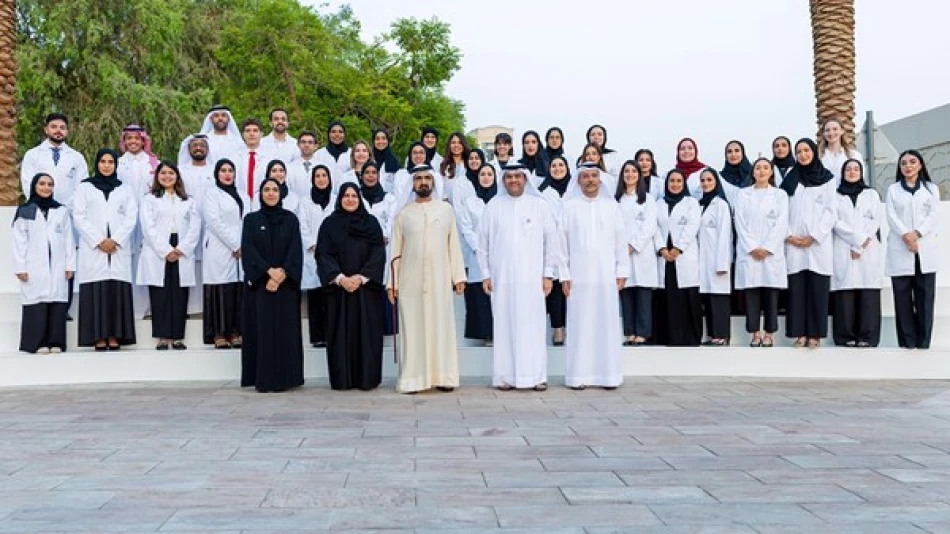
UAE Vice President Meets Top Graduates of Mohammed Bin Rashid University of Medicine and Health Sciences
UAE Doubles Down on Medical Education Excellence as Dubai Graduates 164 Healthcare Professionals
Dubai's Sheikh Mohammed bin Rashid Al Maktoum met with top graduates from Mohammed bin Rashid University of Medicine and Health Sciences, signaling the UAE's strategic push to establish itself as a global healthcare education hub. The 2025 graduating class of 164 students from 30 nationalities represents a significant milestone in the country's Vision 2071 ambitions to lead the region in knowledge-based sectors.
A Strategic Investment in Healthcare Talent
The meeting at Dubai's Union House wasn't merely ceremonial—it reflects the UAE's calculated approach to building indigenous healthcare capacity. With 52 Emirati graduates among the 164 total, the university is successfully balancing international talent attraction with local workforce development, a model that has proven effective in other sectors like finance and technology.
Sheikh Mohammed emphasized that these graduates represent "a fundamental pillar for the future of the UAE and the region in medicine and scientific research," positioning the university as more than an educational institution—it's a cornerstone of national healthcare strategy.
Diversifying Beyond Oil Through Knowledge Economy
The graduation statistics tell a compelling story about the UAE's diversification strategy. The 30 different academic programs span across various healthcare disciplines, suggesting a comprehensive approach to medical education that mirrors Singapore's successful transformation into a regional healthcare hub.
The gender breakdown—129 female graduates out of 164 total—aligns with global trends in medical education where women increasingly dominate healthcare fields. This demographic shift could influence the UAE's healthcare delivery model and workplace policies in coming years.
Regional Competition and Positioning
The UAE's investment in medical education comes as regional competitors like Saudi Arabia and Qatar are also establishing world-class healthcare institutions. However, Dubai's advantage lies in its established infrastructure and international connectivity, making it an attractive destination for both students and faculty.
The university's ability to attract 30 different nationalities demonstrates the UAE's soft power in education—a critical factor as the country positions itself as a knowledge economy leader ahead of the post-oil era.
Economic Implications and Market Opportunities
For investors and healthcare companies, this graduation represents a maturing market for medical services and healthcare technology. A growing pool of locally-trained professionals reduces dependency on expensive expatriate medical staff while potentially lowering healthcare costs.
The emphasis on research capabilities, as highlighted by Sheikh Mohammed, suggests opportunities in pharmaceutical development, medical device innovation, and health technology sectors. This aligns with the UAE's broader strategy to become a regional hub for life sciences and biotechnology.
Looking Forward: Sustainability and Scale
The success of Mohammed bin Rashid University's model will likely influence healthcare education policy across the Gulf region. The institution's focus on producing "tomorrow's leaders in medicine and scientific research" indicates long-term thinking that extends beyond immediate healthcare needs.
As the UAE continues to position itself as a global healthcare destination, these graduates will play crucial roles in maintaining international accreditation standards and building the research infrastructure necessary for medical tourism and pharmaceutical development. The question now is whether this model can scale to meet the region's growing healthcare demands while maintaining the quality standards that attracted international recognition.
Most Viewed News

 Layla Al Mansoori
Layla Al Mansoori






